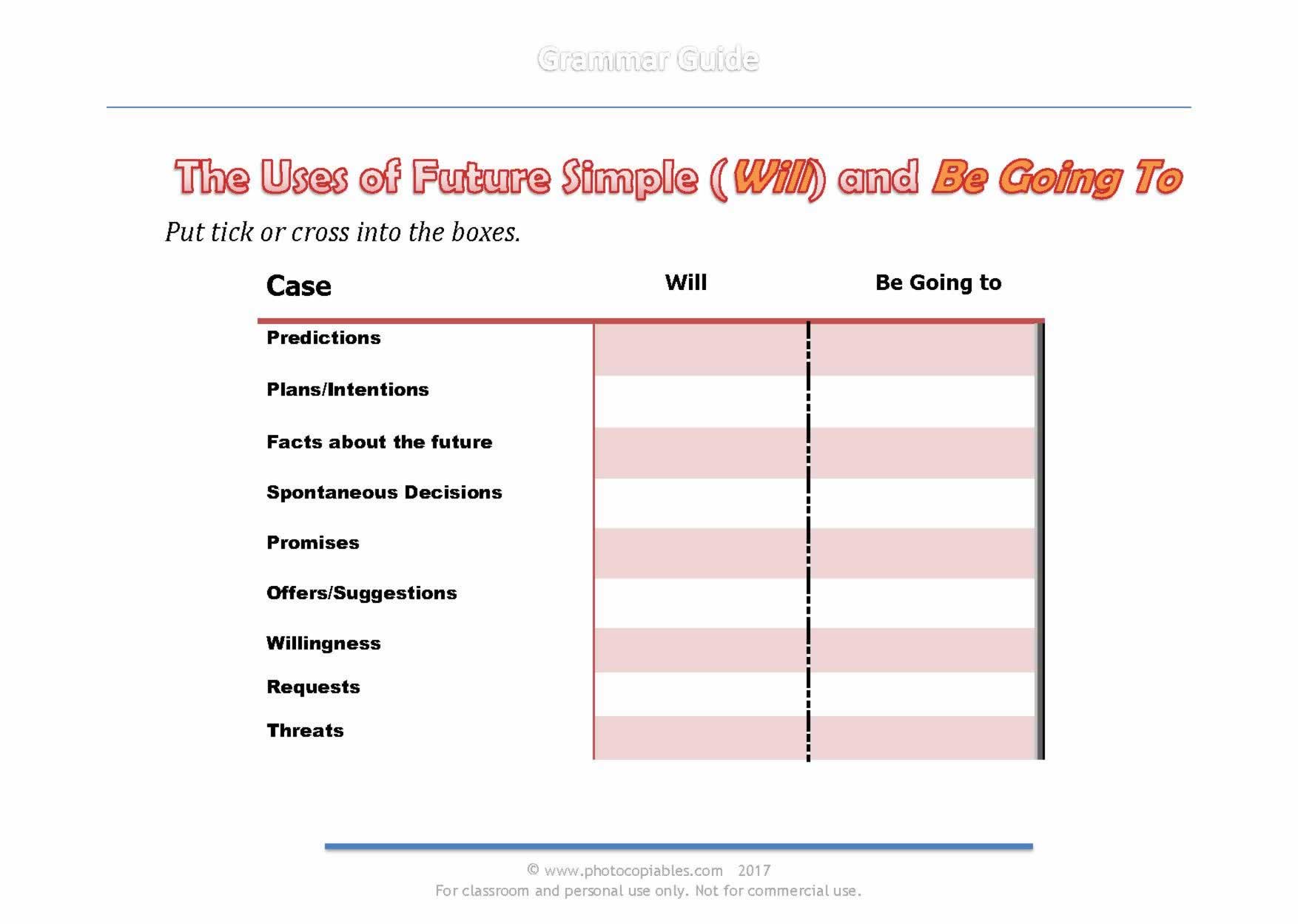Future Simple and Be Going to are very close considering their uses and they are mostly interchangeable. This grammar guide tries to gather all the uses of "will" and "be going to" and makes necessary distinctions between them. You can use this PDF grammar guide as a poster in your class or give it to your students to help them as a grammar reference. Also, an answer key with extra comments is added below.
What's the difference between will and be going to?
As a general thumb rule, “be going to” expresses a premeditated thought, which is a decision already made before speaking. So using “be going to” with plans or intentions is pretty clear as they should always be premediated. On the other hand promises, offers, requests or threats, when they are considered as unpremeditated thought- NOT decided before speaking, are expressed with future simple (will).
In addition to this point above we use “be going to” with predictions when we have a present evidence. Again, we already have something in our minds when we use “be going to” before we speak. On the other hand, we can also use future simple with predictions. However, we base our prediction on our experiences, personal judgement or opinion/intuitions NOT on any present evidence.
To sum up when we use “be going to”, we state that there’s something already present at the moment of speaking. It’s a future tense but also related to the present time. Future simple does not include any present evidence or thought, they always describe the post-present time.
| Attachment | Size |
|---|---|
| 285.23 KB | |
| 307.86 KB |






